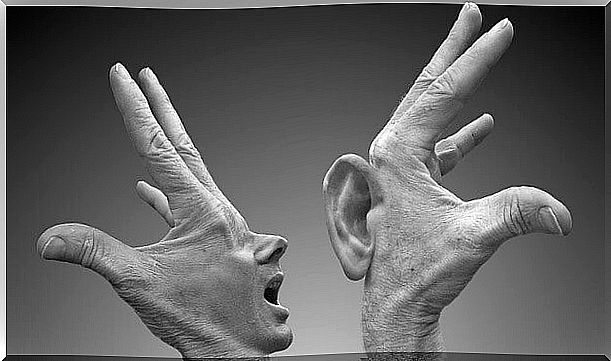Praise Lulls, Criticism Teaches

It is as difficult to accept criticism as it is to receive praise. In fact, there are people who feel very uncomfortable when something nice is said to them. This is partly due to the cultural level, we have been educated in the requirement, in the fact that we have to do everything well and that there is no merit in it.
In addition, that praise and criticism have a great power over our level of self-esteem is very dangerous, since this means that we are putting it “at the feet” of others. When we receive compliments, the message of admiration can be so confusing, stimulating so much love for oneself that we can get “drunk”. On the other hand, when we receive destructive criticism, the opposite happens, there is a morbid tendency to discredit you, to offend us.
He thinks that any task can be won or lost, the important thing is the nobility of the resources used. What is really fundamental is the dignity with which we travel the path in pursuit of our objectives. Accepting constructive criticism from our environment helps us to better adapt to various situations, while praise can weaken us by reducing our effort in the praised qualities.

Criticism is inevitable
Evaluation is part of the thinking of every human being. In our culture we are used to paying more attention to the negative than to the positive. We see flaws and problems more easily than qualities and opportunities.
Each person responds differently to criticism. We think that this depends on whether the criticism is constructive or destructive, but it is not entirely so. Even the same criticism made by two different people can provoke totally opposite responses and emotions.
Sometimes, the way in which we take criticism does not depend on what we are told, but on what we think about it, regardless of the criticism and who makes it, the difference is in who receives it. In the importance and interpretation that we give, both to the words and gestures that we receive and to the person who makes them.

How do you profit from praise?
So that praise does not cause others to fall into the trap of vanity, it is important to praise the specific activity or behavior, not the person. The way we praise can affect your thinking and, in turn, your propensity to take on challenges, persevere, and succeed academically. There are two particular mindsets: fixed and growth.
On the other hand, if we are the ones who receive it, let us think that praise has a positive component, as it reaffirms a job well done, which provides information that says that the path is the right one. Qualifying this, there are authors who tell us that we live to be recognized and we cannot deny that in certain people it seems true. In addition, for some people , praise can be the basis of pride, which in excess can distort the reality of the environment and the value of the performances themselves.
To reinforce someone with a compliment, it is best to formulate it around concrete facts or results . Generalities such as “you do it very well” or “how clever you are” are of little use. Better to say “I liked how you solved this specific problem” or “how well you worked to exceed the assigned objective, even though I know you didn’t like the task”.

In the same way that highlighting only negative points creates frustration, saying only positive points creates comfort. But the problem with most of us is that we’d rather be ruined by praise than saved by criticism.









